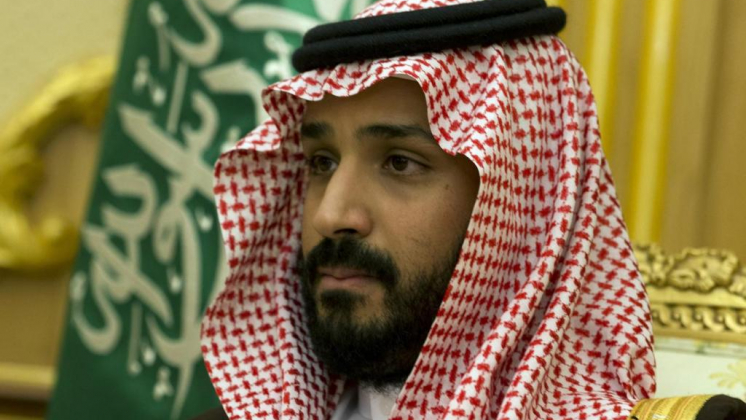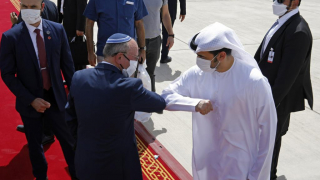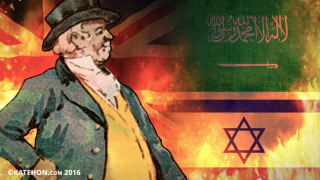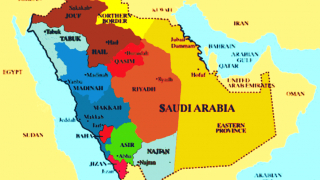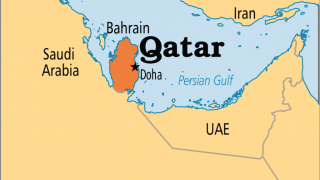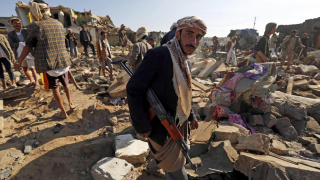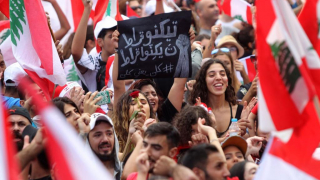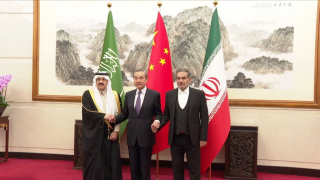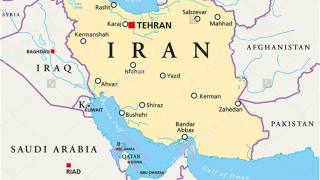New Saddam Hussein and New Failed Arab Actor: Saudi Arabia
29.12.2017
When Iraq attacked Iran on September 1980, the world thought that Iranian new post revolution’ political system will collapse in a week. Saddam though that he would capture Tehran easily. During Iran-Iraq war between 1980-1988, Iraqi arms purchases was about 63 billion dollars and Iraq became the first armaments importer in the world. In that time world closed eyes to Saddam Hussein’s actions and this led him to attack and capture Kuwait in 1991. The most important issue here is that the great powers was supporting Iraq before his attack to Iran. Today like in described time in Iraq in 1980th, Saudi Arabia doing the same failed policy.
Looking at the arms purchases of the southern Persian Gulf states, it can be said that the area has become a major weapons warehouse that can be blown up at any moment in a very dangerous way. The crisis in the Middle East has reached its peak. According to SIPRI’ report during 2012–16 Saudi Arabia’s arms imports increased by 212 per cent compared with 2007–11. It became the world’s second-largest arms importer, accounting for 8.2 per cent of global arms imports in 2012–16. The UAE has continuously had high levels of arms imports since 2001. Its arms imports increased by 63 per cent between 2007–11 and 2012–16. Qatari arms imports rose by 245 per cent between 2007–11 and 2012–16 as part of a program that will multiply its military assets several times. Kuwaiti arms imports increased by 175 per cent between 2007–11 and 2012–16. There are important questions about these purchases. These weapons will be guide against which country? In case of “yes” which kind of capacity they will be able to use?
Saudi Arabia has dominated its neighboring countries. The goal is to remake image of Iran as the most dangerous country in the region. In this context, the demonize policy of Trump and Israel about Iran, encouraged Saudi Arabia in its destabilizing measures in the region. It seems that Saudi’ defeat in Syrian crisis has convinced them to create new crises. The National Interests reports that “the Obama Administration sold over $115 billion worth of weapons to Saudi Arabia in 42 separate deals during its eight years in office”. In the Trump administration, he tried to gain a lucrative contract and signed the largest arms deal in history with Saudi Arabia in May 2017worth $109.7 billion dollar.
The purchases made Saudi leaders feel power and begin to create regional problem alongside of Syrian crisis.
In March 2015 Saudi Arabia started to attack Yemen which was in pre-war stage by internal instability and chaos. The increase dynamic of conflict developed platform for new proxy war between Saudi Arabia in Yemen that is still an actuality. Despite the all-out war that Saudi Arabia has launched, it is a war without achievement.
In January 2016, a wave of demonstration took place in Tehran and Mashhad ruling by extremist groups in front of the Saudi embassy and some of them attacked to the embassy in Tehran and consulate in Mashhad. The Iranian government condemned the demonstrators, but Saudi Arabia denied it and cut all ties with Iran. It seems that inexperienced politicians in the country were waiting for excuses. They forced Bahrain, Sudan, UAE and some other countries to cut their diplomatic relations with Iran. The actions and results on it showed that Saudi’ policymakers are strongly dissatisfied with Iranian activities in the region.
One year later the similar accident was happened between Saudi Arabia and Qatar, after Qatar’ al-Jazeera TV has been hacked. Saudi Arabia forced Egypt, the United Arab Emirates, Yemen, Libya, Bahrain, and Maldives to cut their relations with Qatar, describing it as supporting of terrorism. As a result this crisis leaded to strategic victory of Turkey and Iran against regional reactionary and also revealed the gap between Arab fragile alliance that had been hidden for years. The other case was on the Lebanon PM’ resignation on November 2017. The public opinion in the region especially in Lebanon, united against the wishes of Saudi’ young prince, which also leaded to isolation of the country.
Recently Independent reported that “bin Salman (MbS) of Saudi Arabia is the undoubted Middle East man of the year, but his great impact stems more from his failures than his successes”. His policies and tactics against Iran have been reversed and have actually increased the influence of Iran in the region. The actions of the politicians of this country are similar to the actions of Gamal Abdel Nasser in the 1950s and 1960s, and Saddam Hussein in the 1980s and 1990s. The populist policies of Gamal Abdel-Nasser sparked his disastrous wars in a series of woefully harmful consequences in Egyptian history. Saddam Hussein, with his actions, has also entered Iraq into a cycle of crises that are still ongoing.
It turns out that if regional provocations of Saudi politicians do not stop, the history will be repeated.
Negative energy in the region is increasing and arms purchases have fueled it. The military budget of Iran has been around $ 120 billion between 2007 and 2016, looking at military structures of a country like Iran with an estimated 80 million population and an area of 1.65 million square kilometers. At the same period Saudi’ military budget has been around 610 billion with 32 million population and an area of 2.15 million square kilometers. Some other countries in the region like the United Arab Emirates with 257 billion (till 2014), Kuwait with 55 billion have taken the Saudi Arabia’ line.
The armed forces of these countries are heavily dependent on abroad, while the Iranian armed forces are largely self-sufficient. Therefore, in an erosion war, in addition to Iran's damage, these countries could severely be defected, as they do not have the necessary human resources. Looking throw experience of the various Arab wars in the twentieth century and recent wars in the region makes this fact obvious. Iranian armed forces have had 8 years duration war with Iraq and have been fighting in Iraq and Syria since 2011. In addition, Iran's ability to mobilize regional forces is huge, as it was affected from Pakistan to Nigeria in Africa.

